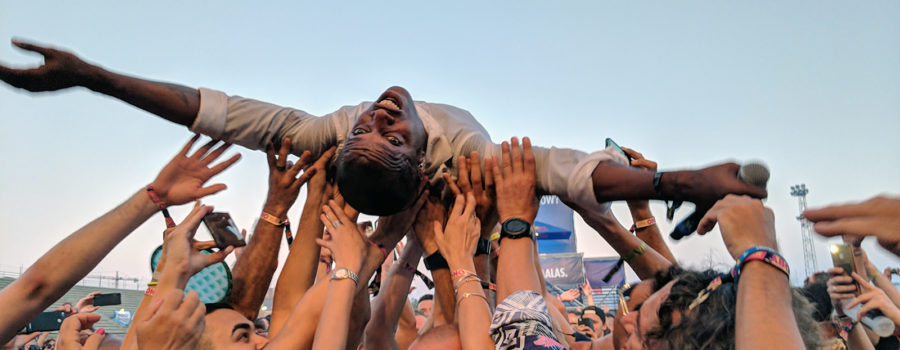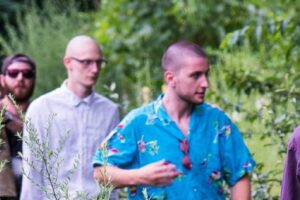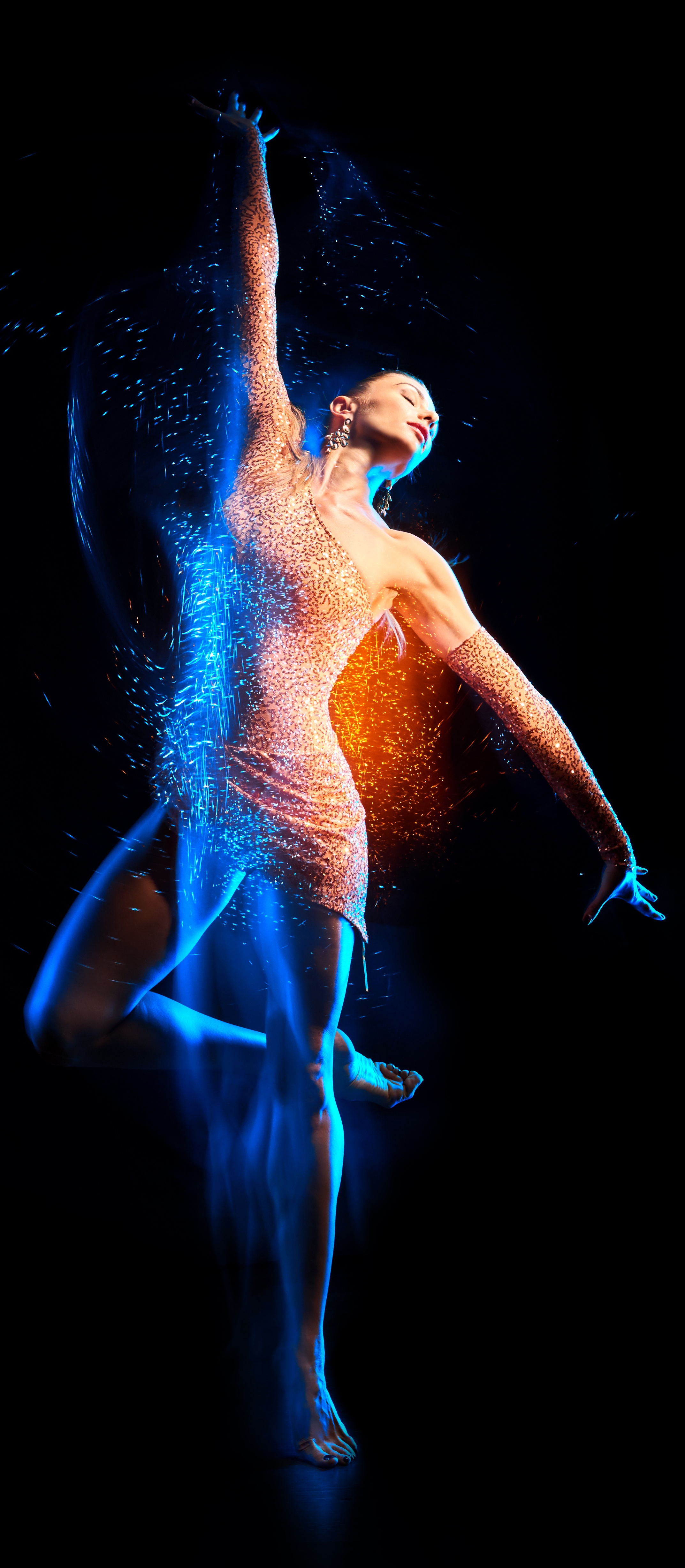Photo Credit: Blame Photography; Vintage Trouble, Low Festival
“I like every part of a gig and each moment can bring you the opportunity to take a great shot.” – Gorka Urraburu
Anyone who’s ever been to a concert is familiar with the gaggle of people strapped with cameras standing right against the stage. Photographers looking to be the one to capture the shot of the night within the confines of 15 or so minutes. Photographers like Gorka Urraburu. An electronics engineer by day, Gorka took his love of music and being behind the lens to create Blame Photography. We started with how the fusion of his passions came to be and ended with the exciting news of what’s to come.
Kendra: Before Blame Photography came to be, were you a photographer trying to figure out their favorite subject to shoot or were you a music fan trying to find footing in that realm?
Gorka: On the one hand, I’ve loved music since I can remember. When I was a child I had a half an hour trip to school by bus, and I was listening to music on most days during the whole trip, from cassettes on my Walkman (yes, I am that old), to CDs on my Discman, even Minidisk for some time, and later mp3. On the other hand, with time, I also started to like photography to keep and treasure the moments I enjoy when I travel when I spend time with my family or friends or even in my day to day.
So if you put both things together, it is easy to figure out how Blame Photography came to be. When I had the money and time, I started going to gigs and festivals and enjoying them a lot, so it wasn’t long before I brought my compact camera and started taking pictures of my favourite bands. More recently I began sharing my pictures and they were well received, so I started to be accredited for some festivals, which allows me to bring a better camera and to be closer to the bands.
Kendra: Now that you’re all in with music photography, what do you prefer…the intimacy of a small gig or the overwhelming chaos of a festival?
Gorka: That is a hard question. At a small gig, you can focus on fewer bands (the supporting and the main) and the main one usually brings a bigger setlist which gives you a little more time to find the perfect shot. But when it’s done it’s done, you go back home and that’s all.
The festivals are all frenzy. There is more than one stage and the bands usually overlap, so you have to plan it all wisely. I use to take a look at the schedule days before, choose the bands I wanted to see, the stage they are playing, and make my schedule for each day. You have to take into account that if you have to share content during the festival, then you also have to leave some time for it. And then you even have to eat and drink! As you can see, festivals mean a lot of work! But it also gives you more variety of content and the chance to know new bands, which as a fan is great.
That being said, answering your question, I would go with the festival unless the small gig is from one of my top bands. There are some more, but the first three that come to my mind are Kasabian, Franz Ferdinand, and Arctic Monkeys.

Photo Credit: Blame Photography; Kasabian, Warm UP Festival
Kendra: Does Spain have the same rule that photographers are only allowed out during the first three songs of the set? If so, do you ever get peeved if an artist pulls something out later in their set that would’ve made an amazing shot that you just couldn’t catch because your time out front was done?
Gorka: Yes, we have the same rule here in Spain, except for a few festivals which have their own photographers and they are more permissive with them. But normally yes, we are only allowed to take pictures during the first three songs or the first 10 minutes for DJ sets.
I have read it started in the ‘80s in New York, as a way to avoid bothering the band during the whole show and to make them look “perfect,” and it rapidly extended around the world. At the beginning of a show, the band comes from the backstage well dressed, hair done, wearing their sunglasses…then after the first songs, it all starts. They start to get all sweaty, lose some clothing, some of them jump to the crowd, and by that time you are normally out of the pit and far away from the first row, so yes, sometimes you get peeved. But that’s just how it is.
If I have the time between one band to another, when the three songs are done, I always try to get as close as possible through the crowd to try to get some more pictures. Sometimes the lighting on the stage looks great from afar, or you can keep taking nice shots if you bring a telephoto lens or even an ultrazoom camera.
You have to remember there are more photographers like you, so if you only take pictures for the first three songs from similar angles like everyone else and leave, you will end up with similar pictures to everyone’s else’s.
Kendra: Being a music photographer has to be one of the most dynamic aside from nature because you’re always in a new environment. Each concert is its entity. Yes, most crowds are similar but you just never know what they’ll do, how the stage will be. How do you prepare for the unexpected when you head out to shoot a show?
Gorka: It totally depends on the country, the area, and the season. I use to carry my “essentials” in a small backpack, but then you always have to add some extras. Summer festivals and gigs in Spain can be so exhausting, the weather is so hot so sunscreen is a must, and you have to constantly drink water to stay hydrated.
Another example, I recently went to Glasgow Summer Sessions, where the weather is different and the rain was expected, so instead of the sunscreen I added a cape, plastic for my camera and also a sweater, and I am so glad I did it! But then I knew nothing about how muddy can the ground turn with just a few rains. They added hay across the site, but by the time the festival finished, you could not see any of it and there were like three or four inches of mud. I almost lost a trainer!
And of course you have to prepare your photography equipment depending on how big is the place if it is open-air or not, and what your plans are. You cannot carry everything with you, and sometimes you have to make some decisions which you can regret later.

Photo Credit: Blame Photography; The Vaccines, Razzmatazz
Kendra: Are there any backdrops, stage setups, lighting designs you wish artists would drop because they don’t photograph well?
Gorka: Well, definitely the lighting can be your best ally but also your worst enemy as a music photographer. You have to always be ready to change rapidly the camera parameters or to have a couple of presets prepared because the lighting can change really quick. The blue and red lights are also quite tricky, but can also bring you a good opportunity to take a silhouette shot.
Normally the smoke is also a hassle, but again, you can take advantage of it and manage to take good shots. So no, I wouldn’t say I wish they drop this or that, it is all a matter of adapting to what you have.
Kendra: How do you feel Instagram has enhanced the world of photography from say a mere five years ago?
Gorka: As a social media based on pictures, it took photography to a whole new level. It doesn’t matter if you have the best equipment, a five-digit number of followers, or an amazing website with thousands of daily visits. You can make an account, share your work and reach a large number of people from all parts of the world. You can also be in touch with other photographers, share experiences and learn a lot from them. If not a game-changer, Instagram at least added some interesting features to it.
Kendra: Can you let us know what you have going on as we head deeper into 2019 and soon into 2020?
Gorka: I have some interesting news. I will be launching my website by the end of September. It will be of course a photography site showing my work, mostly pictures from festivals and gigs, but also my trips around the world. You will be able to visit it at blamephotography.com.
And even though the summer is almost over, there are a few more festivals to come. I will give you just a taste…I will be going to DCODE Festival in Madrid, and also to Granada Sound as an accredited photographer. There will be some more before 2020, and I am crossing my fingers that at least one will be in the UK, also accredited, but I cannot say more.
And about 2020, I am sure it will be a very exciting year!

Photo Credit: Blame Photography; Frank Carter and The Rattlesnakes, Glasgow Summer Sessions






